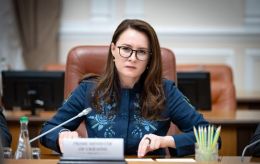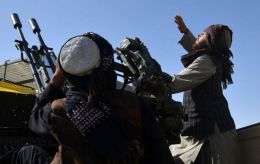Ukrainian next elections: Zelenskyy's team and opposition give approximate dates
 Photo: When the next elections in Ukraine may take place (RBC-Ukraine, Vitalii Nosach)
Photo: When the next elections in Ukraine may take place (RBC-Ukraine, Vitalii Nosach)
Both the Servant of the People party and the opposition believe that presidential or parliamentary elections will only be held after the war. However, the timelines for their conduct differ between the political camps.
More about when the presidential and parliamentary elections may occur in Ukraine and how the war affects it - in RBC-Ukraine's material below.
The war is the main obstacle to holding elections. Currently, there is a consensus within the government that elections cannot be held under the current conditions. The reasons have been repeatedly stated: uncertainty about the territories where these elections can be held, unresolved issues with voting for millions of Ukrainians abroad and millions of internally displaced persons (IDPs) within the country, participation of military personnel in the elections, various security issues with voting and vote counting, and so on.
Finally, there is the funding of the elections. As Zelenskyy said last year, "I will not take money away from weapons to give it to elections." Moreover, holding elections during the war would require numerous changes to the legislation, which would be a separate, complex task to pass through the Rada.
Thus, the phrase "first post-war elections" currently seems to be the only alternative.
What Zelenskyy's team says
Since the time and conditions for the end of the war are entirely uncertain, the elections themselves are still in the fog.
"There are too many black swans and unpredictable inputs," says a source on Bankova, citing one of them: the possible victory of Donald Trump in the US presidential elections.
"Everyone is fussing about the elections. Except for us. We believe that the president's party will gain a lot anyway. And we need to solve global issues now," a source in the Servant of the People party told RBC-Ukraine.
According to him, many are starting from the premise that some negotiations after the war's end may take place in the spring of next year. Some even believe it is possible to hold the elections themselves in the spring: either only presidential (in Ukrainian political logic, presidential elections should be held before parliamentary ones) or all at once.
Some deputies in the Servant of the People party also raise the topic of elections within their circle – those who are dissatisfied with the current uncertainty and want to plan their political future more clearly. Some functionaries on Bankova are also, at the very least, considering possible future election scenarios – but without specifics and especially without directives from above.
"In reality, elections look very unlikely until at least next summer. Therefore, there is no activation or preparation for elections right now," said a source in the entourage of Kyiv Mayor Vitali Klitschko. In his opinion, holding local elections next year, which are scheduled to take place in the fall, looks more probable.
"How to conduct them technically is another matter. But this could become a kind of first experience for the authorities in conducting national elections under wartime conditions. And all other talks about any dates or announcements regarding presidential or parliamentary elections are rumors spread within some parliamentary political forces to energize their deputies, party members, or branches – a completely traditional technique," the source believes.
On the other hand, many versions of the possibility of elections already in the first half of 2025 are based on the fact that Donald Trump could win the US elections this fall, promising to end the war very quickly (although it is not yet known how). Therefore, according to this scenario, after lifting martial law and ending hostilities, the Ukrainian authorities will try to hold elections as soon as possible.
What the opposition says
However, as noted by Sergiy Vlasenko, deputy head of the Batkivshchyna party, at least six months must pass, from the official end of the war and the lifting of martial law to the holding of elections. The MP explains that one reason is to give millions of internally displaced persons and those who went abroad time to return home. According to Vlasenko, one of the resolutions of the Central Election Commission also states that it will take about six months to coordinate and organize the voter register.
"Moreover, after the end of the war, post-war work will need to be done – ensuring recovery, security, and so on. Therefore, I do not see any prerequisites for holding elections either at the end of winter or in the spring of next year. After the end of the war, we will need to add or subtract about six months – only then, in my opinion, can we talk about organizing the vote," Vlasenko explained.
One of Dmytro Razumkov's allies, MP Vasyl Mokan, mentions a similar six-month period from the end of the war to the holding of elections. He suggests that in the first half of next year, some national elections may be held, or at least the date of their conduct may be agreed upon and announced.
Elections in Ukraine
President Volodymyr Zelenskyy will perform his duties until the results of the next elections.
However, when exactly the elections in Ukraine may occur is unknown, as they are strictly prohibited during martial law. More details - in the RBC-Ukraine article.

